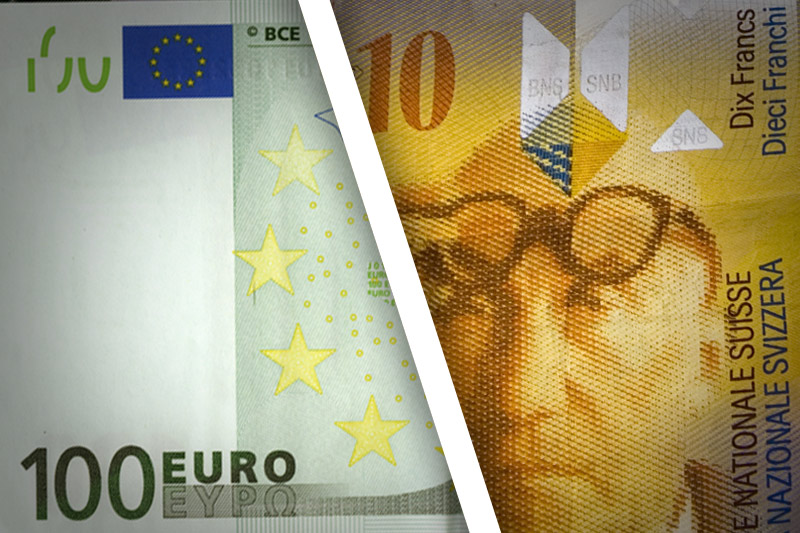Investing.com - The euro fell to two year lows against the Swiss franc on Wednesday, as investors looked ahead to the outcome of the European Central Bank’s monthly meeting on Thursday.
EUR/CHF hit lows of 1.2033, the weakest level since November 2012, before retracing some of those losses to trade at 1.2041, unchanged for the day.
The ECB was widely expected to keep monetary policy unchanged, but the Bank of Japan’s surprise stimulus move on Friday fuelled expectations that it will soon follow suit in order to spur growth and inflation in the euro area.
Data on Wednesday showed that the euro zone’s composite services purchasing managers’ index, which measures activity across the region’s private sector, edged up to 52.1 from 52.0 in September, indicating only modest growth.
A separate report showed that euro zone retail sales dropped 1.3% from a month earlier in September, compared to expectations for a fall of 0.8%. It was the biggest monthly decline since April 2012.
Earlier Wednesday, official data showed that Switzerland’s consumer price index was flat in October after ticking up just 0.1% in September.
The annual rate of inflation was also flat, after dipping by 0.1% in September.
The data highlighted concerns over the growing risk of deflation taking hold, and added to pressure on the SNB to intervene in the currency market to stem the appreciation of the franc.
The SNB imposed the 1.20 per euro exchange rate floor in September 2011 in order to ward off the risk of deflation and a recession as a result of the franc’s rapid appreciation.
The SNB said in its September policy statement that the economic outlook has deteriorated considerably and the Swiss franc is "still high."
The Swiss central bank also said it “will continue to enforce the minimum exchange rate with the utmost determination. For this purpose, it is prepared to purchase foreign currency in unlimited quantities. If necessary, it will take further measures immediately".
The single currency was also lower against the broadly stronger dollar, with EUR/USD down 0.53% to 1.2475, close to the two-year trough of 1.2437 struck on Monday.
The dollar made broad gains on Wednesday as the results of U.S. mid-term elections were seen as positive for the economy.
The Republican Party took control of the U.S. senate and extended their majority in the House of Representatives, riding a wave of voter dissatisfaction with President Barack Obama’s party at the polls.
The result boosted hopes for an end to political deadlock in Washington.
The US dollar index, which tracks the performance of the greenback against a basket of six major currencies, was up 0.56% to four year highs of 87.65.
